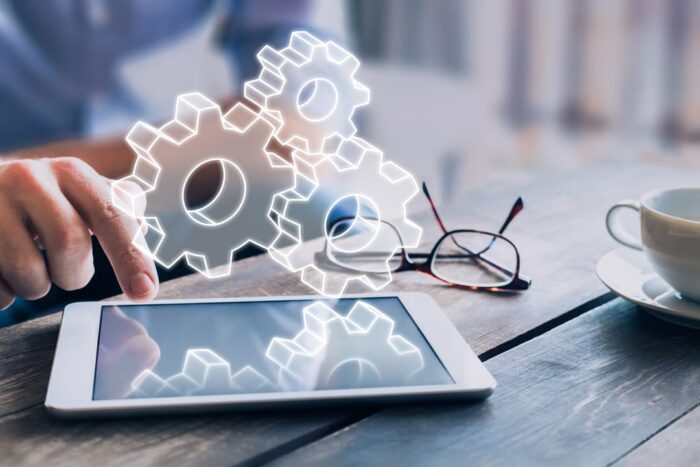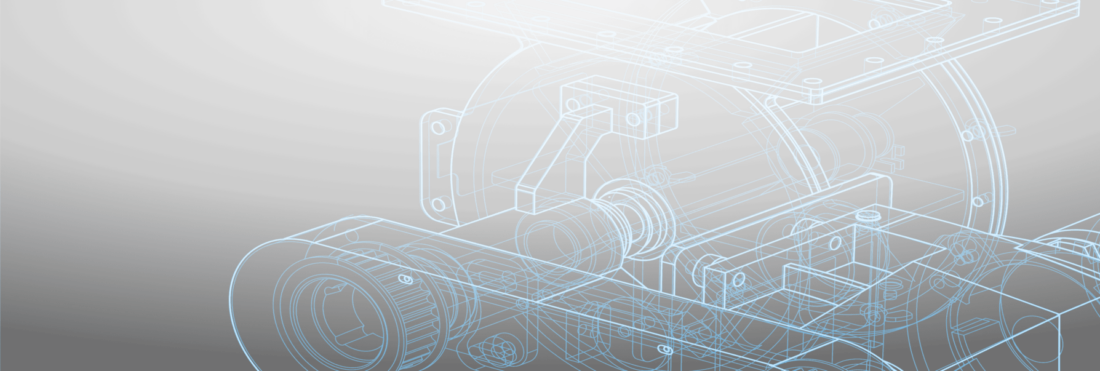
Why You Need a Connected Shop Floor (Plus How To Get One With Genius ERP)
Your shop floor is central to your business, so why do so many manufacturers still rely on paper to manage it?

What is Industry 4.0?
Industry 4.0 is the combination of innovations in digital technologies that are changing the face of the manufacturing industry.

Industry-specific ERPs vs. Generic ERPs
In today’s marketplace, many different types of ERP systems are available. While this increases consumer choice, it can make it difficult to understand and know which kind of system is best for your business.

The Do’s and Don’ts of ERP Implementation From an ERP Expert
Want to learn the true secret to a successful ERP implementation? We asked one of our top ERP implementation experts to answer all of your burning questions.

What Can Manufacturers Expect in 2022?
The good news: the manufacturing industry, with the exception of a few sectors, is booming, and the growth experienced in the industry over the last year is forecasted to continue throughout 2022 and into 2023.

Marathon Paves the Way to Growth With Genius ERP
After moving into their new facility and a strong focus on growing their business, Marathon needed to improve their processes.

New partnership with L’école des Métiers en Aéronautique de Montréal
L’école des Métiers en Aéronautique de Montréal (ÉMAM) has chosen Genius ERP's Academic Program to help train the next generation of specialized workers on the tools they will use in a working manufacturing environment.

What is the Difference between ERP & CRM Software?
ERP and CRM software are valuable tools that every manufacturer needs. While both will increase the overall profitability of your business, CRM software helps you manage your customers, whereas ERP software helps you streamline all of your business processes.

Back to Basics: ERP for Production Managers
An ERP will give production managers all the tools they need to plan, execute, and complete complex manufacturing jobs.

How to Select an ERP System
With hundreds, if not thousands, of different types of ERP systems on the market, it’s hard to know which system is right for your business. Different tiers, target markets, and feature sets can make the selection process overwhelming—and make it difficult to know where to start.

Back to Basics: ERP for Sales
Your sales team will benefit from the integration, organization, and tools an ERP provides — but most importantly, it will help your salespeople close more deals.

Back to Basics: ERP for Purchasers
An ERP makes purchasing easier for manufacturers by automating everyday purchasing tasks and providing accurate real-time data to ensure that you always have the right amount of stock on hand.

Back to Basics: ERP for CEOs
An ERP helps CEOs and senior executives make better strategic business decisions by supplying them with comprehensive, timely, and reliable internal data.

Back to Basics: ERP for Engineers
Engineers need an ERP system that has their unique needs in mind, including creating and managing Bills of Materials (BOMs), routing steps, and work instructions. Engineers also need an ERP that allows for the seamless integration of a CAD system with the ERP.

Back to Basics: ERP for Accountants
Accountants will benefit from an ERP by using integrated data to streamline all of their accounting processes.

Back To Basics: Benefits of an ERP System
ERPs are indispensable to manufacturing companies. They are the industry gold standard for a reason — nothing streamlines business processes, provides accurate real-time data, and reduces costs better than an ERP system.on.

What do the Best Manufacturing Companies have in Common?
We all want to be the best at what we do, right? But as a manufacturer, what do you actually need to do to become the best?

Back To Basics: Elements of an ERP System
You already know that ERPs enhance visibility, improve your business practices, and increase your shop’s efficiency. But how do ERPs actually do all of these things?

Seriously, Excel Is Not an ERP
Many manufacturing companies rely on Excel for all sorts of tasks, from scheduling to inventory management to data analysis, because it is readily available, easy to use, and is seen as a cost-effective solution for organizing and planning business operations.

Back To Basics: What Is an ERP?
An ERP is business process management software that connects and integrates every aspect of a business — giving manufacturers visibility over their entire operation and allowing them to create better manufacturing processes, lower costs, and improve performance.

15 Common ERP Mistakes
Here are the 15 most common mistakes manufacturers make when they are selecting, implementing, or working with an ERP.
Get your eBook Scared to implement a new ERP?
"*" indicates required fields
